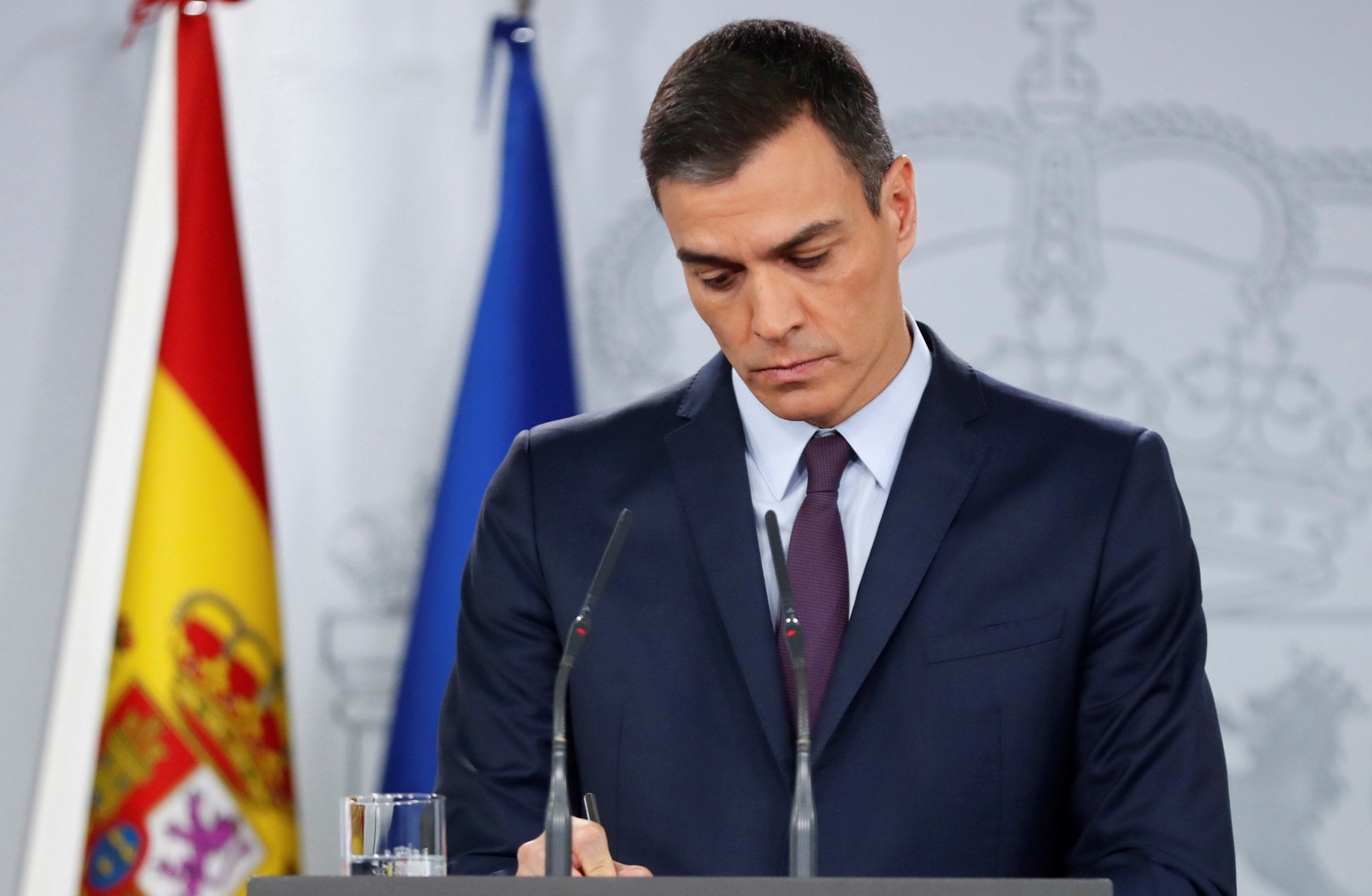Spanish prime minister takes big risk by calling for general elections
Analysis: General elections are proof that Catalan question has left no corner of Spanish politics untouched

Your support helps us to tell the story
From reproductive rights to climate change to Big Tech, The Independent is on the ground when the story is developing. Whether it's investigating the financials of Elon Musk's pro-Trump PAC or producing our latest documentary, 'The A Word', which shines a light on the American women fighting for reproductive rights, we know how important it is to parse out the facts from the messaging.
At such a critical moment in US history, we need reporters on the ground. Your donation allows us to keep sending journalists to speak to both sides of the story.
The Independent is trusted by Americans across the entire political spectrum. And unlike many other quality news outlets, we choose not to lock Americans out of our reporting and analysis with paywalls. We believe quality journalism should be available to everyone, paid for by those who can afford it.
Your support makes all the difference.Pedro Sanchez’s decision to call a snap general election on 28 April - just eight and a half months after he took power - is a big gamble for the prime minister.
His party may be leading in the polls and up against a fractured opposition, but analysts warn that the Catalonian crisis will continue to make the election season a difficult one for Mr Sanchez.
Mr Sanchez’s Spanish Socialist Workers' Party (PSOE) remains the most popular party, holding around 25 per cent of the vote according to recent polls, ahead of their traditional rivals, the conservative People’s Party (PP), who are on 21 per cent. The PSOE’s hard-left rivals, Podemos, are meanwhile struggling to present a united image after severe recent infighting.
But there are concerns that the far-right Vox party’s successes in Andalucia’s recent regional elections - helping to place the PP in power in Seville for the first time in nearly four decades - may be a potential blueprint for ousting the Socialists nationally as well. Last week, a rally organized by Vox, PP and Citizens to demonstrate against Mr Sanchez saw at least 45,000 attendants in Madrid.
Manuel Carvalho, analyst and editor-in-chief of Portuguese newspaper Publico, says that to talk about the Spanish right as a united front “doesn’t make sense”.
“I think the PP and Ciudadanos leaders know that if they are too close to Vox, they risk losing part of their electorate … it would push the moderate voters into the arms of the socialists.”
Fears that Vox may get seats in the national parliament may further encourage voters going to the polls to support the socialists, with “the hard right are coming!” a traditional rallying cry for the left in Spanish elections.
The socialists' current margin in the polls is however not enough to garner an absolute majority.
“The big question will be whether the socialists form a post-electoral alliance with Ciudadanos, or whether that’s not possible,” lawyer and columnist Juan José López Burniol warns.
Yet only a few streets away from the Spanish parliament, in Madrid’s Supreme Court, the trial of 12 separatist leaders for rebellion will continue through the elections - and protests within the region are on the rise again.
“These general elections are proof that the Catalan question has left no corner of Spanish politics untouched,” says Germà Capdevila, political analyst for L’Esguard magazine and online Catalan daily NacioDigital. .
“With the trials running parallel to the elections, that’s going to make things more difficult to solve all round. And until they find a political solution to Catalonia, this turmoil in Spanish politics is going to be here to stay.”
But appearing tough on Catalan separatists may help Mr Sanchez, with his party recently breaking off negotiations with the Catalan Nationalist Party.
“Calling elections was his best option,” says Juan José López Burniol, lawyer and political columnist for La Vanguardia, Catalonia’s biggest newspaper. “Sanchez can present himself to the average Spanish voter as the politician who didn’t cross any red lines with the separatists.”
Join our commenting forum
Join thought-provoking conversations, follow other Independent readers and see their replies
Comments